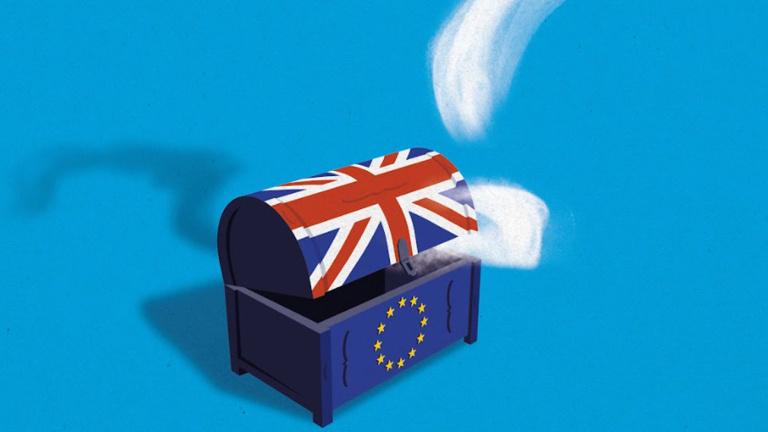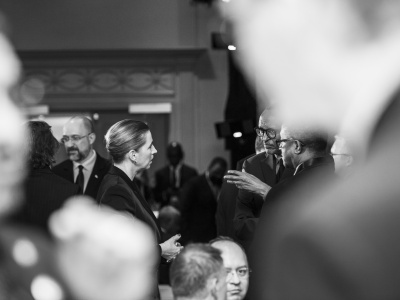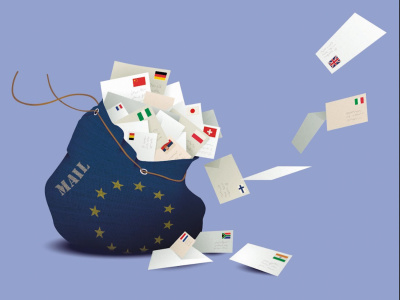
To the point: UK-EU coordination for the poor
If they coordinate, the EU and UK could do more to benefit poor people in developing countries after the UK’s withdrawal from the EU, even if they opt to operate their development programmes and policies separately. However, given path-dependencies and current pressures, the best post-Brexit outcome would arise from a form of collaboration where domestic objectives are moderated by acting multilaterally.
The European Union is unique. It has gone farther than any other international institution in pooling decision-making policy and resources. It represents the aspiration to match structure to the increasingly global nature of the challenges facing its members and the wider world. The preambles to its Treaties set out the ambitious aim to be a global force for good, in recent years with a focus on poverty reduction and sustainable development. EU influence will be multiplied with the UK aligned – whether inside or outside the tent – on common development cooperation objectives. The EU has yet, however, to realise its full potential in effecting positive change in developing countries, arguably because member state domestic objectives tend to compromise these aims. This has meant that while EU external policies have led to some positive humanitarian and development outcomes, they have also often been pursued in the context of unfair terms of engagement that have disadvantaged developing countries.
After Brexit, the UK is expected to be free to develop its own trade policy, and to have less incentive to cooperate with the EU in external affairs. Yet, the UK has declared the wish to have a deep and special relationship with the EU. On 24 May, the UK issued a non-paper reiterating its desire for ‘strategic co-operation’ based on the belief that ‘our collective impact in addressing specific development challenges is greatest when we work together’. If close collaboration doesn’t happen, I argue, it will create a negative impact on poor people in developing countries, in particular the poorer countries, and those affected by conflicts and natural disasters.
Let’s look at this at the multilateral level
First, let’s consider the UK’s contribution to EU priorities in external action at the multilateral level, where the EU including the UK has been one of the key international actors, whether in the context of the World Trade Organization, climate change negotiations, the UN, or other groupings.
Trade arguably offers the biggest potential for reducing poverty, and it is hard to see how there can be meaningful cooperation in trade policy post Brexit. Therefore, the UK’s liberal stance, which has limited agricultural protectionism harmful to developing countries, will no longer impact EU trade policy. The immediate risk here is disruption of established trade patterns, in particular, for poorer countries with fewer options. UK civil society organisations (CSOs), which were the first CSOs to focus on trade’s potential for poverty reduction, will also find it harder to gain traction on EU trade policy.
Indeed it is possible, though there are few signs of it so far, that UK trade policy could favour developing countries more than the EU does, for instance, copying the African Growth and Opportunity Act. But UK trade policy is bound to be less important than EU trade policy. In any case, if trade is to reduce poverty it will matter whether the linkages between aid for trade and adjustment to liberalisation continue; and the UK has been a key player in attempting to ease adjustment with aid for trade (see Kennes, 2018). The impacts of the UK withdrawal on EU migration policy are less clear. Brexit may just accelerate existing trends on this, as in other areas (Bond, 2017). Less coordination on taxation is likely to reduce opportunities for increasing revenues from foreign investment in developing countries.
There would be definite downsides to reduced cooperation on environment and climate change – even if fears of diminishing UK environmental standards prove unfounded. Ill-coordinated initiatives would be less likely to achieve the same systemic impact, and developing countries still face disproportionate impacts of climate change and waste mismanagement, for example. If a UK government came in that was inclined to end co-operation under international agreements, such as on emissions reductions or food aid, it would certainly hit poor people in developing countries.
What about aid?
In relation to overall amounts of aid, the EU is the largest donor, including all member state contributions and the European Commission. The UK is one of only five member states to have met the UN aid spending target of 0.7% of gross national income. Brexit is bound to reduce the European Commission’s credibility in pressing its member states to raise their ODA commitments to the 0.7% notch, which itself will have global impacts given European leadership on this.
As for the quantity of European Commission aid specifically, despite the ambitious proposals on the table for the next EU budget, Brexit seems likely to reduce the amount for ‘external action’ of the EU budget (the EDF successor may be a separate risk). How much it will drop depends on the interest in continuing collaboration and how the portion of the ‘Brexit bill’ classified as official development assistance is used in the negotiations.
The likelihood is that any ‘repatriated’ funds would not be spent as effectively by the UK. They would be less likely to be spent in joint programming and in complementarity with others, and might be spent by departments other than the Department for International Development (DFID). These other ministries have a less good record in contributions to poverty reduction on average, according to reviews done so far by the UK’s own Independent Commission on Aid Impact (icai.independent.gov.uk).
The quality of EU aid, as judged by aid effectiveness principles, might also change. With the UK out of the EU the focus on the poorest countries rather than richer neighbours might be reduced. The UK was also one of the few member states focused on using European Investment Bank (EIB) resources for poverty reduction and development outside the EU, as opposed to for domestic priorities. It would be a shame to see CSO voices reduced as the EIB scales up its investment in developing and emerging economies. Moreover, the UK and its experts seconded to the Commission have made important contributions in various areas of policy, such as aid effectiveness, gender, and specific issues like cash transfers in emergencies.
The UK also loses impact in reducing poverty and vulnerability if it no longer coordinates with the EU, which operates in 120 countries, far more than the UK can reach bilaterally. The EU has a broader range of levers to coordinate with UK input in regions where there is fragility like West Africa and the Sahel. The EU can also do different things in areas where Europe is perceived as more neutral than the UK (Castillejo et al., 2018).
The negative impacts of failure to coordinate are probably most evident in humanitarian emergencies. The Ebola crisis illustrated the power of coordination between the EU and UK, as well as with other actors like the United States and with the UN, where the UK is more engaged than other EU member states. The escalation in displacement of people in the decades since 1970 requires a joined-up response to ensure protection of vulnerable people. The UK has encouraged reluctant member states to uphold humanitarian principles, as well as being a major funder. The UK and EU need to continue to cooperate in upholding the Grand Bargain, which aims to increase efficiency to get more help to more people more quickly.
How about the role of the UK-based international NGOs?
International NGOs are key to delivery of EU aid to the poorest, to peace-building, as well as to advocacy in favour of the poorest. UK-based international NGOs represent a long history of knowledge and expertise, while having strong grassroots support in the UK (an estimated 5 million people are ‘engaged supporters’). Yet, UK-based NGOs are already no longer eligible, according to ECHO, to apply to implement humanitarian programmes, where they traditionally played a leading role (delivering 25% of the programme in 2016, Haynes and De Toma, 2017). Even where they are eligible in development programmes, financial liabilities are created by the ‘Brexit clauses’ in contracts. This represents, firstly, a disruption of service to poor people in developing countries, in particular in emergencies. In the medium term, it will at least produce a loss of expertise and forfeiture of a strong sector voice.
While Bond and its sister networks like Concord and VOICE are already taking steps to maintain links and work together, rather than abandoning efforts to influence the largest donor, there is no doubt that it will be harder to maintain the engagement unless there is a clear UK involvement that legitimates the CSO voice (Godfrey, 2018).
Concluding remarks
Parallel and complementary UK and EU programmes might help reduce poverty and achieve the SDGs. However, given the history and current political and economic pressures, the best results are likely to be achieved by collaboration, where domestic objectives are moderated by acting multilaterally. Civil society networks like Bond, Concord, and VOICE will keep up their own joint work to press for coordination, which helps the poorest the most.
References
Bond (2017), The impact of Brexit on UK and EU development policy. London: Bond.
Castillejo, Clare, Mikaela Gavas, Mariella Di Ciommo, Meritxell Sayós Monràs, and Niels Keijzer (2018), The European Union’s next financial framework: Prospects and challenges for EU development co-operation, European Thinktanks Group.
Godfrey, Claire (2018, 9 January), ‘Brexit isn’t an end to UK-European civil society collaboration’. London: Bond.
Haynes, Rachel and Costanza de Toma (2017), The impact of Brexit on EU funding for CSOs. London: Bond.
Kennes, Walter (2018), How Brexit may affect ACP-EU relations: An historical perspective. Discussion Paper 220. Maastrict: ECDPM.
About the author
Tamsyn Barton wrote this contribution in her former capacity as chief executive at Bond, the UK network for organisations working in international development.
Twitter: @TBartonUK
Read the full magazine issue







